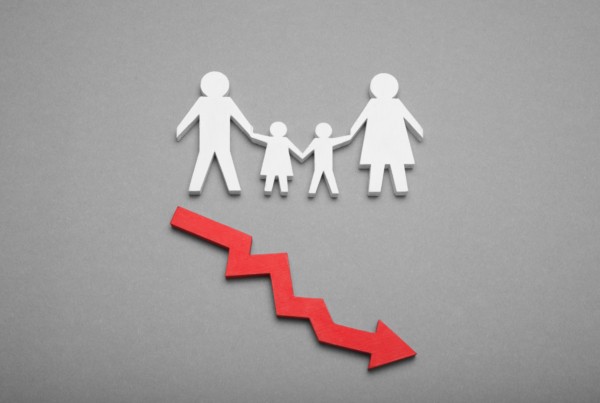You and your partner delayed having children for the first few years of your relationship. Now, you both agree, it’s time to start your family. To prepare, you both work on your lifestyle habits and no longer drink coffee, smoke and you are both eating the right foods (no more fried foods full of fat and sugar), you’ve lost weight, everything is right. But, it’s been several months since you’ve been trying to conceive and you’re wondering, why is it taking so long? You’ve opened up and sought the advice of close friends and family, listened and tried to relax. Yet, the idea that something could be amiss starts to take shape in your minds.
The logical next step is to schedule an appointment with a fertility specialist to understand if what you suspect might be true. But, the very thought that one of you is infertile causes your apprehension to mount. The days and months leading up to a fertility check-up are stressful and confusing. This is not the type of appointment that one prepares for in life.
Infertility is not only a dreaded word but a much more dreaded condition that sets a couple apart from more than 80% of other couples globally. The social implications of not being able to conceive a child are overwhelming. The isolation, embarrassment facing others, anger over “why me” and the shame and uncertainty surrounding the investigation, diagnosis and treatment all add up to an overwhelmingly stressful journey. So, taking the first step, seeing a fertility specialist, is a huge decision and one you must make with your partner for full support.
The fertility check-up itself fills couples with discomfort as it takes a private matter outside of the bedroom and places it into an open discussion with strangers. The intimate details of one’s sex life and the functioning of one’s body get scrutinized and assessed. Understandably, couples usually think of fertility check-ups with trepidation, reluctance and most of all, embarrassment and fear.
Take the first step…
A 2015 Ernst & Young study reports that less than one percent of India’s 27.5 million infertile couples seek advice or evaluation.
Early information helps: If you are keen to start a family, it is a good idea to begin by getting an assessment of your reproductive health. Having the right information is empowering and will provide a plan going forward which can decrease stress (“A least we know the plan and there is hope ahead.”). Starting the process as early as possible is key to the successful implement the plan, make lifestyle changes and select the right professional to optimize results.
Understand the fertility testing process
Men and women undergo different kinds of tests as they contribute unique components to the process of conception. Conception problems can be an individual or combined issue so proper investigation of both the man and the woman is critical. Open, candid discussions will help the fertility specialist understand the issues and define the right approach to follow. It might be helpful to understand that, although this is your first experience with this line of questions, the fertility specialist asks these questions everyday of every couple seen.
Women typically undergo a physical examination and blood tests that check for hormone levels and possible infections. Men begin a fertility assessment by getting a complete semen analysis. Oftentimes this presents a real problem for the man. Many men experience significant problems “delivering” a semen sample at the doctor’s office. This is well documented and real problem that is even featured on TV shows and movies. At the heart of these dramatic shows is a very real problem and a situation that countless men endure, much to their discomfort.
Avoiding embarrassment
Because the investigation, diagnosis and treatment of infertility is so embarrassing and stressful, medical technology is looking for innovative solutions to provide fertility screening at home. The thought is that if you can go into the fertility specialist already aware of a problem, it will reduce stress and move the process of treatment forward much sooner. While a woman must undergo various types of tests for fertility screening, a man is typically screened with one simple test: semen analysis. A home based semen analysis would therefore GREATLY benefit the male partner.
The YO® Home Sperm test for example, provides men with an advanced assessment of their sperm by testing motile sperm concentration (the number of moving sperm cells in 1ml of semen). The value of testing this parameter is that it considers both the NUMBER of sperm and whether they are MOVING. Both of these are key when looking at fertility potential in a man. Additionally, and of great benefit to the man and to the fertility specialist, a video of the sperm sample is also captured and can be saved/sent for viewing by the fertility specialist. YO is > 97% accurate, easy to use and FDA/CE cleared.
The advantage of knowing if you have an issue before going to the specialist, coupled with the ease/comfort/privacy of obtaining a sample and testing it at home, makes YO a very valuable option for men to use for their initial fertility assessment. Based on this affordable and accessible test, men can then make informed decisions about their reproductive health.
Confidence to understand your reproductive health is key!
It is important to remember that being held back by embarrassment only delays starting a family; sometimes past the age for conception. Patient friendly medical advancements and innovations are emerging that will provide accurate and essential early fertility screening at home.
Our less invasive home tests with accurate results can optimize the possibility of becoming parents by (1) being available with critical information early in a couple’s journey (2) aiding the fertility specialist to focus on a treatment thereby saving valuable time and unnecessary expense (3) reducing anxiety and stress with a result that can be assessed by the fertility specialist during the first visit.
All in all, with these types of home tests, the sting can be taken out of a fertility check-up by giving the individual the choice and freedom to take the test in ways they find comfortable.
Start the Fertility Test journey
Take the first step. If you suspect you have a fertility issue or are just worried that you might have a problem concieving, investigate home testing options that are accurate, relevant and effective. Take the results to a fertility specialist to hear if there is an issue. Fertility / conception is both a numbers game (enough moving sperm) and one of critical timing (when she’s in her fertile time and not beyond a certain age). If you suspect you may have a problem, reach out early to grasp the hand of someone who is ready to help.







